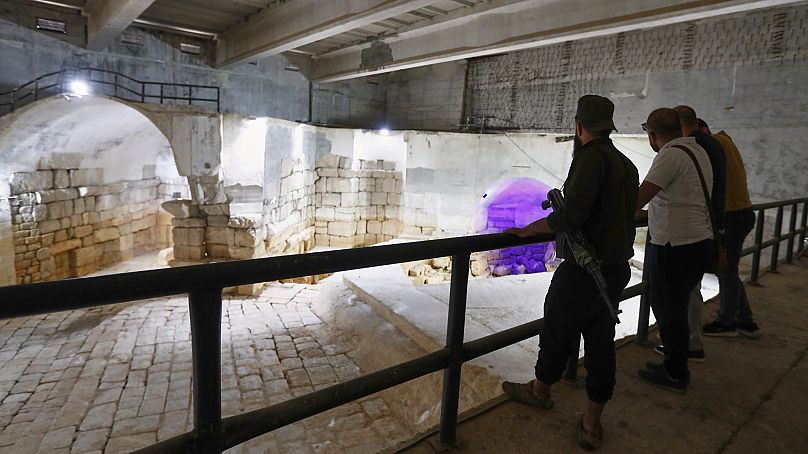Residents in the Syrian capital are feeling the effects of the lack of rain with authorities urging them to reduce their water consumption.
The Syrian capital Damascus is experiencing a severe water crisis after the driest winter for almost 70 years, an official has said.
Ahmad Darwish, head of the Damascus City Water Supply Authority, said 2025 had seen the lowest level of rainfall since 1956.
A total of 1.1 million homes get their water from the Ein al-Fijeh spring, which Darwish described as "working now at its lowest level."
The spring is largely replenished by rainwater and melting snow from the mountains along the border with Lebanon.
The spring and the Barada River, which it feeds, supply 70% of the water used by the five million people living in and around Damascus.
In order to cope for the rest of the year, people will have to reduce their consumption, Darwish warned.
Although the city is already contending with its worst water shortages for years, officials have warned the situation could get worse during the summer.
They have encouraged residents to use water sparingly when showering, cleaning or washing dishes and many people are now having to buy water from private tanker trucks.
Above the Syrian capital, Hassan Bashi, who works as a guard at the Ein al-Fijeh spring, walked through tunnels that used to be filled with water.
"I have been working at the Ein al-Fijeh spring for 33 years and this is the first year it is that dry," he said.
In the east of Damascus, Bassam Jbara said his neighbourhood was only receiving 90 minutes of water a day. It used to run all the time, he added.
Jbara said regular electricity cuts are worsening the problem, as even if there is water, it often cannot be pumped up to tankers on the roofs.
"The people of Damascus are used to having water every day and to drinking tap water coming from the Ein al-Fijeh spring, but unfortunately the spring is now weak," Jbara said.
"From what we are seeing, we are heading toward difficult conditions regarding water," he added, before expressing his fear that supplies could drop further over the summer.
Since the ousting of the long-time dictator Bashar al-Assad in December, Syria's new rulers have attempted to start rebuilding a country devastated by almost 14 years of civil war.
Interim President Ahmed al-Sharaa, the ex-leader of the Hayat Tahrir al-Sham (HTS) rebel group, met with US President Donald Trump last week in Saudi Arabia as part of such diplomatic efforts.
The US and the EU have recently indicated that they will lift economic sanctions on Syria to enable its economy to recover.












